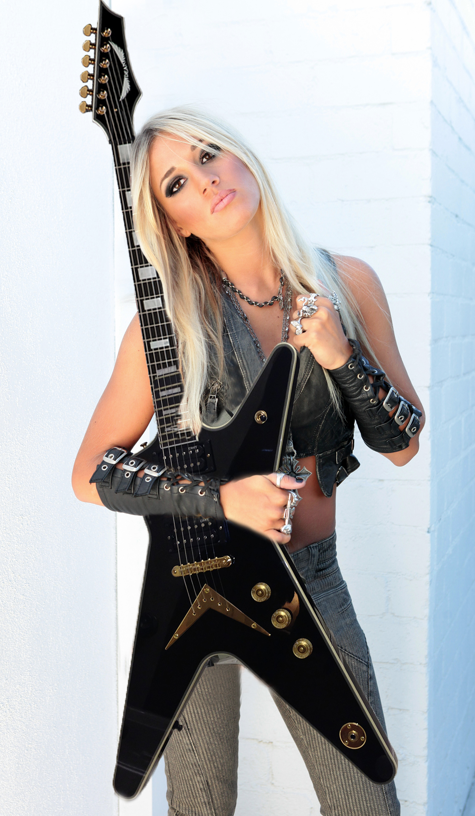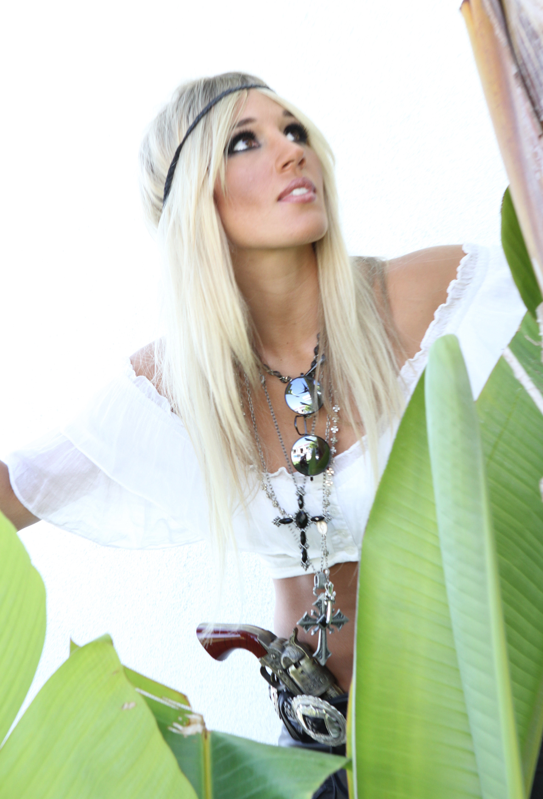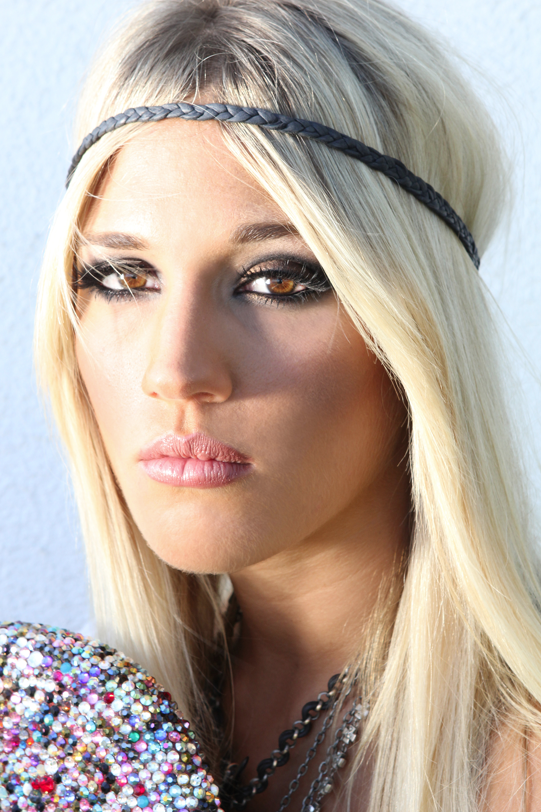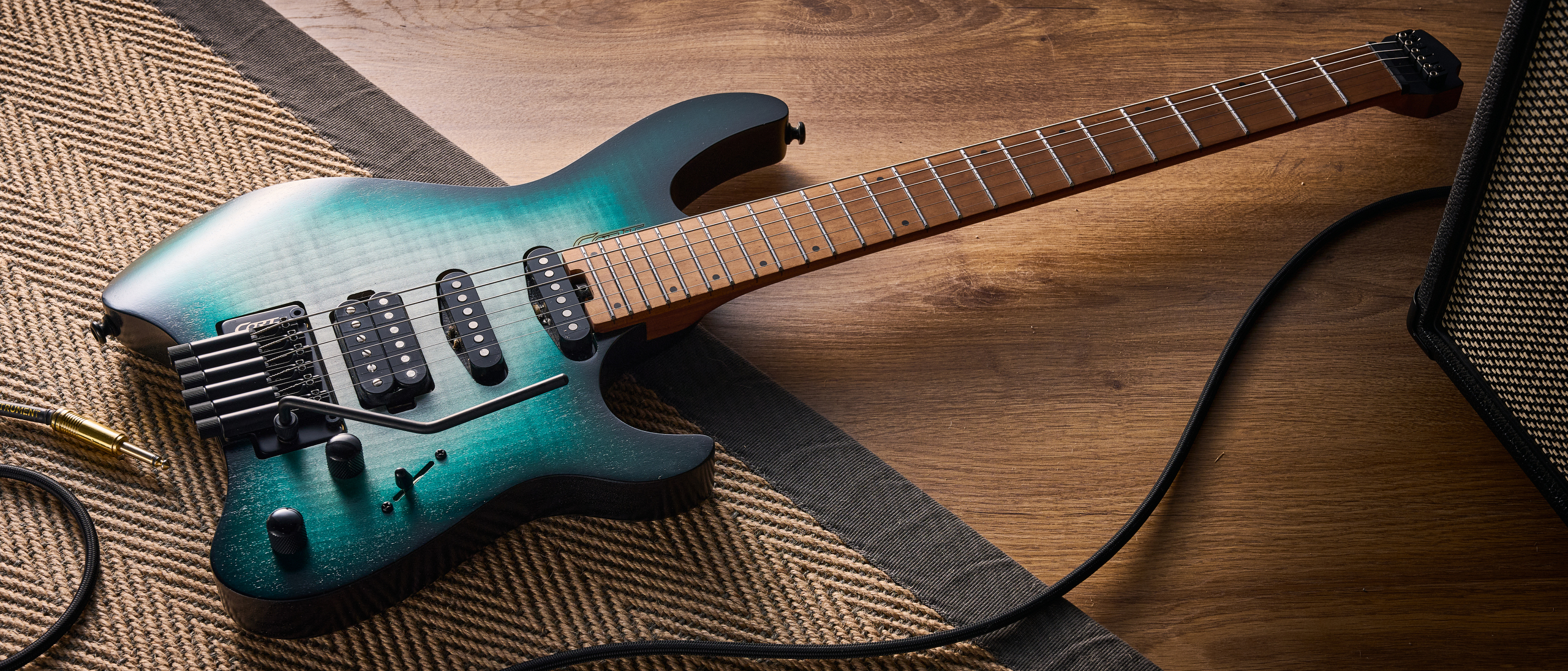Wonder from Down Under: 13 Questions with Guitarist Laura Wilde
All the latest guitar news, interviews, lessons, reviews, deals and more, direct to your inbox!
You are now subscribed
Your newsletter sign-up was successful
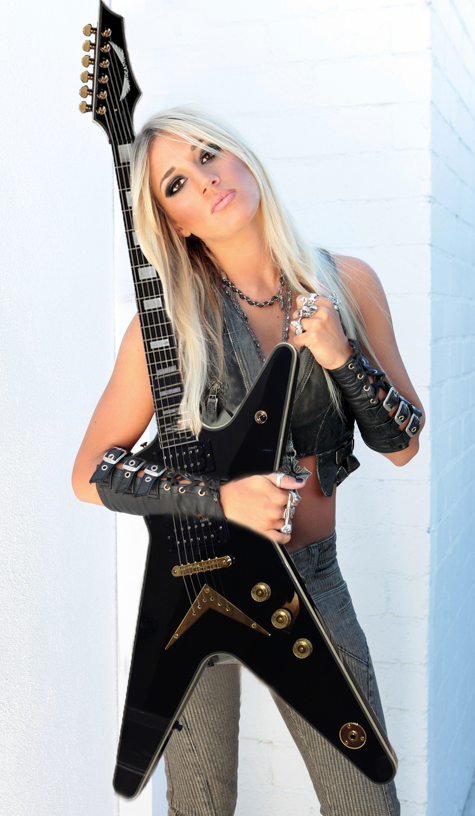
Singer/guitarist Laura Wilde grew up 8,000 miles from the US in Melbourne, Australia.
At 19, however, she followed her dream to make her living as a musician and made a beeline for Los Angeles.
Now, not even four years later, Wilde has a successful solo album under her belt — 2012's Sold My Soul — and is touring the US as Ted Nugent's opening act.
We recently tracked down the 23-year-old Wilde and presented her with 13 questions about her varied influences (including Suzi Quatro), gear, future plans and touring with the Motor City Madman.
GUITAR WORLD: We know you've been influenced by Jimi Hendrix and Jimmy Page, but you've also listed one of the coolest influences I've seen a while — Suzi Quatro. That’s a name you don’t hear often. What got you into her?
My mom had a vinyl record of hers; she's wearing that sparkly suit, and she just looks so cool. She’s chilling out with the boys. There’s a picture on the back on the album where she's rocking her bass. I found it really inspiring. The music has heavy drums and is super-glam and has some Elvis Presley and Little Richard influences. I found it really inspiring how she blazed a trail for women in rock.
As an American, I know how I discovered Suzi. But did you watch Happy Days in Australia?
All the latest guitar news, interviews, lessons, reviews, deals and more, direct to your inbox!
It usually ran when I was in school. I'd watch it when I stayed home sick.
I hear distinct influences in your music — like Sweet, for instance. Am I off-base or did you spend a lot of time listening to bands like that?
Australia is a cultural fusion of music. We get all the American and British music, and then we have our Aussie pub culture, which is very conducive to writing rock music. We've given birth to great rock bands like AC/DC, Jet, Wolfmother and others. The US has different influences entirely. There's a more vast population and great mixes of influences — and Australia gets all of those.
You grew up at a time when it was probably easier to get English and American music. I imagine your parents would've had a harder time finding Black Sabbath records when they were growing up.
Yeah, with music downloads it really connects the world. You can get anything instantly. With things like Spotify, you can pick a genre and hear everything from every decade. It’s fantastic.
Some artists might find that a double-edged sword. It makes your music much more accessible. Someone going to see Ted Nugent can go online and get familiar with your music before you come to town — and that's great. On the other hand, it often makes it harder to sell albums.
I think if someone really loves it and wants to hear it, they can go on iTunes and get it. It’s great for the fans that they can get familiar with my work. It’s nice as a fan that they can sing along.
How did you get started on guitar?
I've been obsessed with musical instruments for as long as I can remember. I have no idea why, but seeing the guitar when I was little would make my heart flutter. I would walk past a music shop and nag my parents to go in. Nothing has really changed with my obsession. I wasn’t allowed to play until I was 12. By the time I finally got one, I never put it down. I felt so lucky to have one in my hands and play it. When people would smash guitars, I’d be looking at the guitar and thinking they could've given it to me!
How did you wind up singing?
I was always into performing at school. I was in the school musical and studied classical singing when I was 15 through 17. So I studied music at school, then I started playing in bands. Doing both — singing and playing guitar — just came naturally.
Do you find doing both limits you on guitar because you're worrying about vocal melodies? Or are you one of the few who are blessed and able to do both?
I’m certainly not blessed. It takes a lot of work to play certain things and sing.
How do you approach writing new material?
The songwriting process varies from song to song. Sometimes it’s just pouring your heart out into a recording. Sometimes it starts with a riff or a chorus. It really is just different every time.
Do you have a lot of interaction with Ted Nugent when you tour with him?
He comes into our dressing room sometimes and checks up on us and makes sure everything is going well with us. Ted is so great. His work ethic and how he performs is phenomenal. He pours his heart and soul into his guitar and expresses his personality through his guitar. His concerts are incredible experiences.
Do you get a little intimidated when he’s watching you play?
I appreciate that he’s not scoffing!
Your debut album, Sold My Soul, was released in 2012. Have you been writing material for the next release during this current tour?
I've been writing like a mad woman since Sold My Soul was released. I’m generating a pool of material to choose from for the next record. We're hoping to get into the studio after this tour.
Every photo on your website seems to show you with a different guitar. Do you have a “main” guitar?
Every guitar has a special place in my heart. Right now, my main guitar is the Dean ML with the six-in-line headstock. It’s a classic Dean with a modern twist.
You can catch Wilde on tour with Ted Nugent through August. Visit laurawilde.com for more information and tour dates.
John Katic is a writer and podcaster who founded the Iron City Rocks Podcast in 2009. It features interviews with countless rock, hard rock, metal and blues artists. In 2013, he started Heavy Metal Bookclub, a podcast and website devoted to hard rock and metal books.
